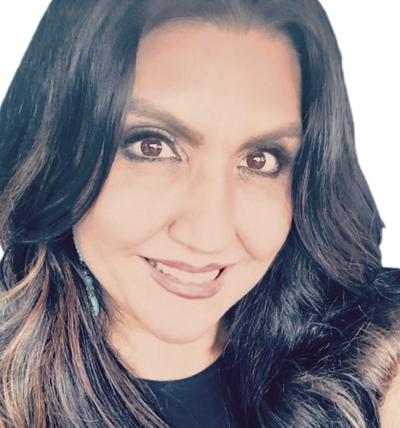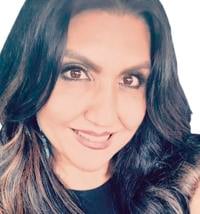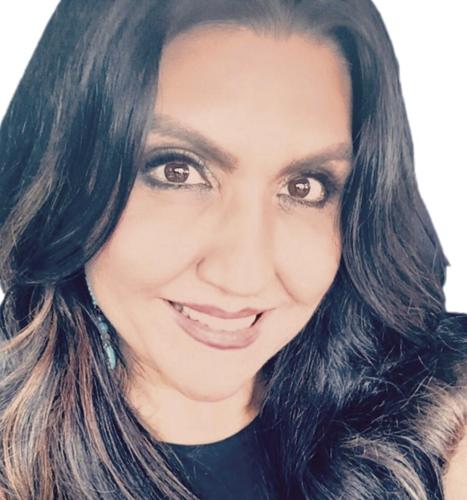Education can be freedom – if it’s on your own terms.
In my native Afghanistan, I was expected to be an obedient daughter and wife, nothing more. But from a young age, I longed for autonomy. In 1983, after my family resettled as refugees in Virginia, I went against my father’s wishes and pursued my education in secret.
It wasn’t until years later, after I’d earned two bachelor’s degrees and a master’s and built a career in academia, that he acknowledged his pride in my achievements. But my education– and not his approval – is responsible for the financial, emotional and personal fulfillment I feel today.
I’ve seen versions of this same story play out across continents and cultures. Growing up, my Nigerian friend and former college student Rachel was told a doctor’s education could free her from a “shadow life” – the situation she faced as the child of a middle-class mother and a “prestigious” father.
Her parents never married, and Rachel’s mother raised her with another man, while her biological father built his own family. When Rachel learned the truth about her origin at age 11, she felt angry and betrayed. “He didn’t want anyone to know about me,” she said of her father.
But there was a catch. Her biological father would recognize her, he said, if she went to medical school.
“Economic status was important to him,” Rachel told me. “He thought becoming a doctor would uplift me in the eyes of society.” Her father even offered to pay for Rachel’s education. She was in elementary school at the time and accepted the help without much consideration. She dreamed of going to college and, like most children, longed for her father’s approval.
She graduated from boarding school in Nigeria, started medical school in China at only 15 years old and then came to America after she graduated for residency.
“Even though I had never visited, I had always dreamed of coming to the U.S. from the time I was a girl,” she told me. “It seemed like anything was possible here.”
Eventually, she moved to Virginia for her pediatric clinical rotation at a George Washington University satellite hospital. Rachel was so close to fulfilling her father’s dream and finally winning his acceptance, but she wasn’t happy.
“I was 21 and didn’t even really know who I was,” she explained. Her father also remained distant. “He took care of me financially, but there was no emotional connection.” For too long, she realized, she had been living her life for him. It was time to put her own dreams and desires first.
Rachel had always been passionate about business. Even in medical school, “I was always more interested in the people who were inventing the advancements” than the daily rigors of being a physician.
Her mom owned a contracting business in Nigeria and was also an inspiration. So, when a friend invited Rachel to be her guest at a business conference, she jumped at the chance. She remembers looking around the room and thinking, “These are the people who are changing the world, and I want to be part of that.” She decided to drop out of her residency to pursue a degree in information technology.
Rachel hoped her father would support her new path; after all, it was prestigious in its own right. Instead, he cut off financial support.
“He told me I could come home, or stay in the U.S. and figure it out by myself,” she said. Rachel was hurt, but not surprised. And she’d made a commitment to herself. “I had a dream, and I wanted to see it all the way.”
In 2017, she enrolled at Northern Virginia Community College’s Annandale campus, where she became my English student. Our class covered social justice issues like racial inequalities and the wealth gap. As a low-income African woman, in a mostly white state, she told me that these topics resonated. She lacked reliable housing and transportation. She often rode her bike for miles to campus, leaving before sunrise and returning long after sunset.
When I learned that she was between apartments, I invited her to stay with my family. By then, the course had ended, and I had learned the details about her story.
Rachel eventually transferred to George Washington University and graduated last year with a bachelor’s degree in information technology. Today, she lives in Arlington and works in cybersecurity, supporting businesses with federal contracts.
Not long ago, I asked Rachel how her father reacted to this change of plans. She said he was palpably disappointed. She knew it meant he would never fully accept her. But in that moment, she said, she made peace with this reality. She had traded a “shadow life” for one in the sun. It didn’t look like the life she had expected or hoped for. But it was one she had built on her own terms.
“I love that, in the U.S., your opportunities are based on your own efforts,” Rachel said. “America helped me become my own person.”
Sophia Aimen Sexton is a professor of English at Northern Virginia Community College’s Annandale campus and co-founder of the nonprofit Female Refugee Education Empowerment. Rachel asked that her last name not be published.




(0) comments
Welcome to the discussion.
Log In
Keep it Clean. Please avoid obscene, vulgar, lewd, racist or sexually-oriented language.
PLEASE TURN OFF YOUR CAPS LOCK.
Don't Threaten. Threats of harming another person will not be tolerated.
Be Truthful. Don't knowingly lie about anyone or anything.
Be Nice. No racism, sexism or any sort of -ism that is degrading to another person.
Be Proactive. Use the 'Report' link on each comment to let us know of abusive posts.
Share with Us. We'd love to hear eyewitness accounts, the history behind an article.